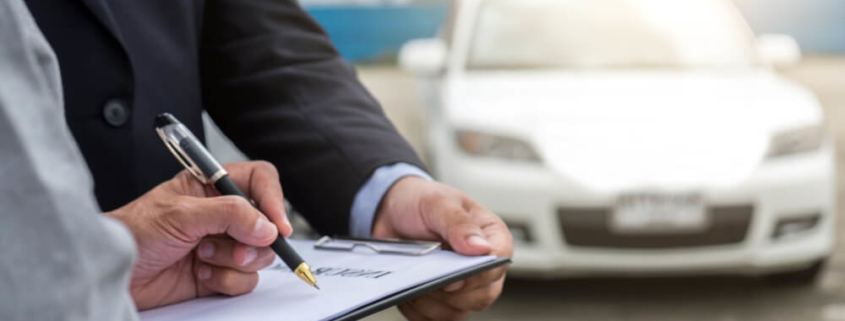Collisions in Parking Lots and Parking Garages
During a typical weekday, parking lots and parking garages in the downtown areas are filled with vehicles of those who are at work. On the weekends, lots and garages at restaurants, retail stores, and shopping malls tend to get busy and fill up as well. During these busy times, there are greater risks of collisions between two vehicles, or a vehicle striking a pedestrian. Although these types of accidents usually happen at a much lower speed than collisions that occur on the roadways, those involved can still end up with significant injuries.
Who is at Fault in a Parking Garage or Parking Lot Accident?
Determining fault is very important in a parking lot collision, especially in states like Alabama where they apply the “contributory negligence” legal doctrine. Under contributory negligence, if an injured party is determined to be partially at-fault (even 1% at fault) for the accident that led to the injury, they can be barred from recovering compensation.
Parking lot and parking garages typically have numerous lanes with cars parked on both sides of the lane. There are also “through” lanes around the perimeter of these areas in which vehicles can enter and exit the parking areas. In general, drivers in the through lanes have the right of way and drivers merging into the through lanes from the parking lanes usually have to yield. One exception to this rule would be if there is a “stop” or “yield” sign in the through lane that gives vehicles from the parking lanes the right of way.
Another common type of collision that occurs in parking lots and parking garages is when two vehicles are backing out of their parking spaces at the same time. With these types of cases, the vehicle that started to back up first usually has the right of way. Therefore, the driver of the other vehicle would normally be at-fault if the vehicles collide. That said, many of these incidents involve vehicles that seem to be backing up simultaneously, and it can be difficult to determine which one started backing up first. If this happens to you, you should not assume that you are at-fault for the collision.
These days, many lots and garages have video cameras, and if video footage does exist, there is a good chance that a fault determination can be made later. For now, do not admit to anything, document as much as possible what happened through notes and by taking photos of the scene, get checked right away for any injuries you may have suffered, and leave it to the experts to sort out whose fault it was.
Third-Party Liability in Parking Lot and Parking Garage Collisions
In some instances, the driver of the other vehicle may not be the only party at fault for a parking garage or parking lot accident. Under the legal theory known as “premises liability”, the owner or manager of the lot could be held responsible if there were dangerous or hazardous conditions that contributed to the collision.
One potential hazard could be a poorly designed garage or lot. A poor design may be one that is confusing for drivers with lanes going in multiple directions and unclear signs and arrows that make it difficult to determine who has the right of way in various situations. Another common problem is the size of parking spaces. Oftentimes, they are not wide enough for all types of regular passenger vehicles to fit into.
Other hazards that the owner or manager of the lot might be responsible for include:
- Potholes
- Uneven Pavement
- Unmarked Construction Areas
- Standing Water
- Icy and Slippery Areas
An experienced personal injury attorney should review your case to determine if any of these hazards existed, and if the injured party may have a case against the garage or lot owner.
Injured in a Parking Lot or Parking Garage in Alabama? Contact the Skilled Attorneys at Burge & Burge
Parking lot collisions do not usually result in severe injuries, but they do happen sometimes. If you or someone close to you was injured as a driver or pedestrian in a parking lot or garage, you may have a right to compensation. Call our office today at 205-251-9000 for a free case evaluation. You may also send us a message through our online contact form.




Leave a Reply
Want to join the discussion?Feel free to contribute!